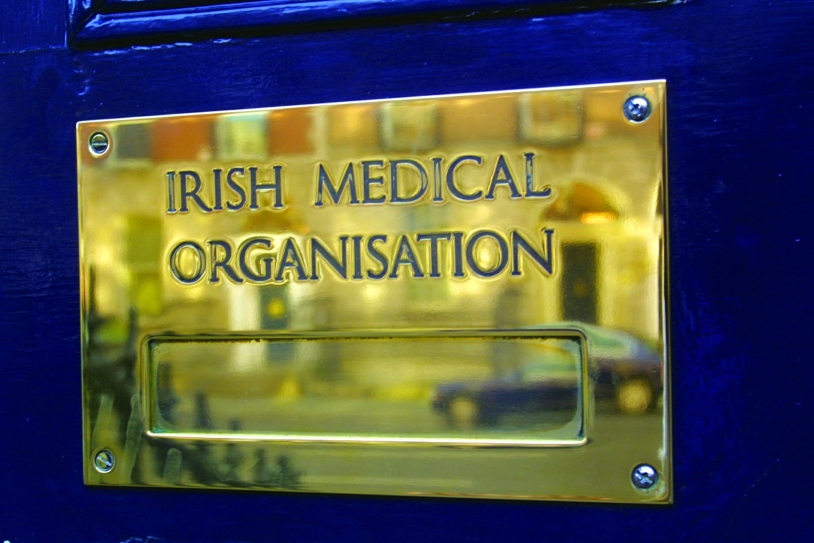There will be “lead-in time” from the commencement of recruitment to full operational capacity in the new community support teams (CSTs) for nursing homes, given “ongoing” recruitment challenges, according to the fourth and final progress report on implementation of the recommendations of the Covid-19 nursing homes expert panel. The panel’s report was published in August 2020.
According to the progress report, CSTs will provide continued support in terms of preparedness planning and outbreak management. They will also facilitate “closer integration of nursing homes, regardless of public/private/voluntary status, with the wider health and social care system contributing to enhanced integration of older person’s services”.
“This was a key recommendation in the expert panel report, and these new CSTs will provide a central resource for nursing homes regarding information on access to relevant clinical supports, including expert advice and identification of appropriate referral pathways.”
Over €8 million has been allocated for the establishment of CSTs in 2022. This will provide over 80 core staff to the nine CSTs, according to the report.
There is a requirement for crisis response teams (CRTs), established during the pandemic, to remain in place until the CSTs are fully operational and resourced to perform required functions. “Recruitment to CST roles is commencing with reassignment where possible of existing CRT staff to CSTs.”
Each CST will have a “core full-time staffing” of a director of nursing (CST Lead); clinical nurse specialist (CNS) in gerontology; CNS in palliative care; health and social care professional; education and training manager; information manager; and CST administrator, outlined the report. These will be supported by the clinical expertise of Consultant Geriatricians and GP Leads who will provide sessional commitments to the CSTs.
The report stated: “The HSE and the IMO are engaged in a process of discussion with the focus in the initial phase, on developing a framework and agreed GP role which would provide the basis for GPs to be more involved in a structured way in supporting clinical governance and providing advice and support to the private nursing home sector. An outline job description is being developed and the intention is that an overall framework agreement would be settled in Quarter 2-3, 2022 with the intention of commencing implementation in Q4, 2022.”
In addition to the €8m being provided for the establishment of the CSTs, a further €1.4m is being made available for the recruitment of infection prevention and control (IPC) staff and social workers as “integral elements of these teams”.
According to the report, many of the panel’s short- and medium-term recommendations, which were aimed at safeguarding people living in nursing homes against the Covid-19 virus, have “already been implemented and mainstreamed into normal operations”. This includes actions taken by nursing home providers and the provision of State supports to nursing homes which are ongoing, including:
- Free PPE
- Access to expert advice and support via Covid-19 response teams
- Serial testing programme
- IPC training and guidance
- Financial supports under the temporary assistance payment scheme.
The report also outlines the status of progress in relation to the range of medium- to longer-term strategic reform recommendations made by the expert panel. These actions include:
- Provision of over €22 million in Budget 2022 for implementation and mainstreaming of a range of expert panel recommendations, including the establishment of permanent CSTs, piloting of clinical governance oversight committees and the development of a safe staffing framework for the sector
- The development of legislative proposals to enhance governance and oversight of nursing homes
- The roll-out of the national nursing home experience survey earlier this year and the development of a national end of life survey for roll-out in 2023
- The extension of patient advocacy service to all nursing homes from end of 2022
- The development of a multi-annual end of life care education, training and support programme for nursing homes
- A cross-Department strategic workforce advisory group is examining workforce challenges in front-line carer roles in home support and nursing homes and is due to report in September 2022.
Minister for Mental Health and Older People, Mary Butler, commented: “The expert panel recommendations have provided a guiding framework not only for the pandemic response in nursing homes over the last two years but also more broadly for a wide-ranging programme of improvement and reform for older persons’ care…
“The expert panel recommendations are wide ranging and require a multi-annual programme of work. The report highlights the important progress that has already been made and sets out clearly the structures and processes that have been established to ensure continued implementation. I was particularly pleased to be able to secure dedicated funding in Budget 2022 to support this.
“The pandemic shone a light on older persons’ care and highlighted many fragilities within our system and has resulted in the garnering of significant commitment to and momentum for wide-scale improvement across all stakeholders. I am committed to continuing to work with the Department, HSE, HIQA and stakeholders in further delivering on this crucially important and extensive programme of work”.
Prof Cecily Kelleher, Chair of the Covid-19 nursing homes expert panel, and the stakeholder reference group, said: “The Covid-19 pandemic posed unprecedented challenges for residential care settings. We need to ensure the wellbeing of older people is at the centre of health policy into the future. There has been much progress, but the impetus must be kept up to deliver on the recommendations in full.”
The final progress report is available here: gov.ie – COVID-19 Nursing Homes Expert Panel Report: Implementation Oversight Team (www.gov.ie)













Leave a Reply
You must be logged in to post a comment.